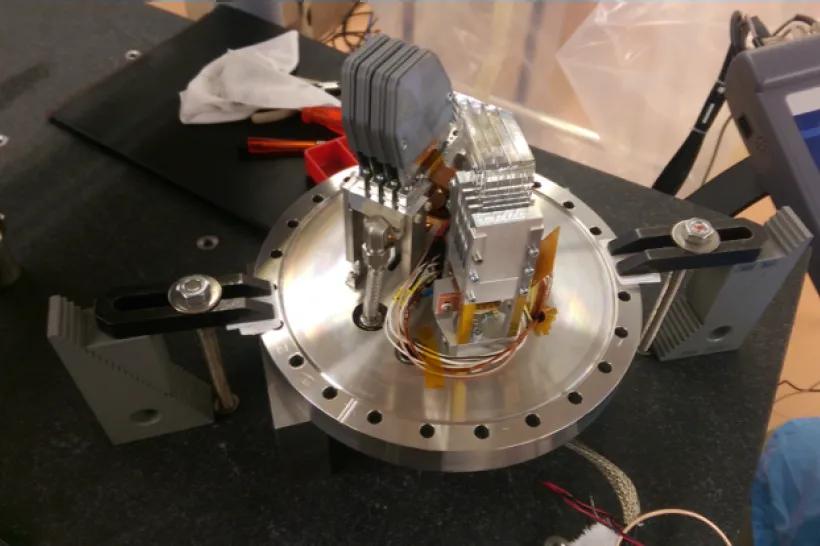The study of heavy-ion collisions at extremely high energies is one of the most current topics in today's nuclear and elementary particle physics. In these processes, an extreme temperature rise occurs in the nuclear matter, which, according to quantum chromodynamics (QCD), causes a phase transition of the nuclear mass to the so-called quark-gluon plasma (QGP) state. This is the state of matter in which the entire Universe was immediately after its creation, after the Big Bang. The investigation of the properties of QGP, as well as many other phenomena caused by the interaction of ultra-relativistic ions, is the aim of the ALICE experiment at the CERN LHC collider, in the implementation of which FZU staff participates.
In cooperation with the Czech company TENEZ Chotěboř, our institute contributed to the production of the electromagnetic spectrometer PHOS. We are currently focusing on the analysis of measured data, more specifically on the study of azimuthal asymmetries of produced particles. At the same time, a more general methodology was developed, which we also successfully used in astrometry.
Interaction of ultra-relativistic ions in the LHC experiment ALICE
Text
Theme is contributed to by
Phone:
+420 266 05 2664, +420 266 05 2610
Phone:
+420 266 05 2664
Phone:
+420 220 318 542, +420 220 318 416
Phone:
+420 266 05 2661



